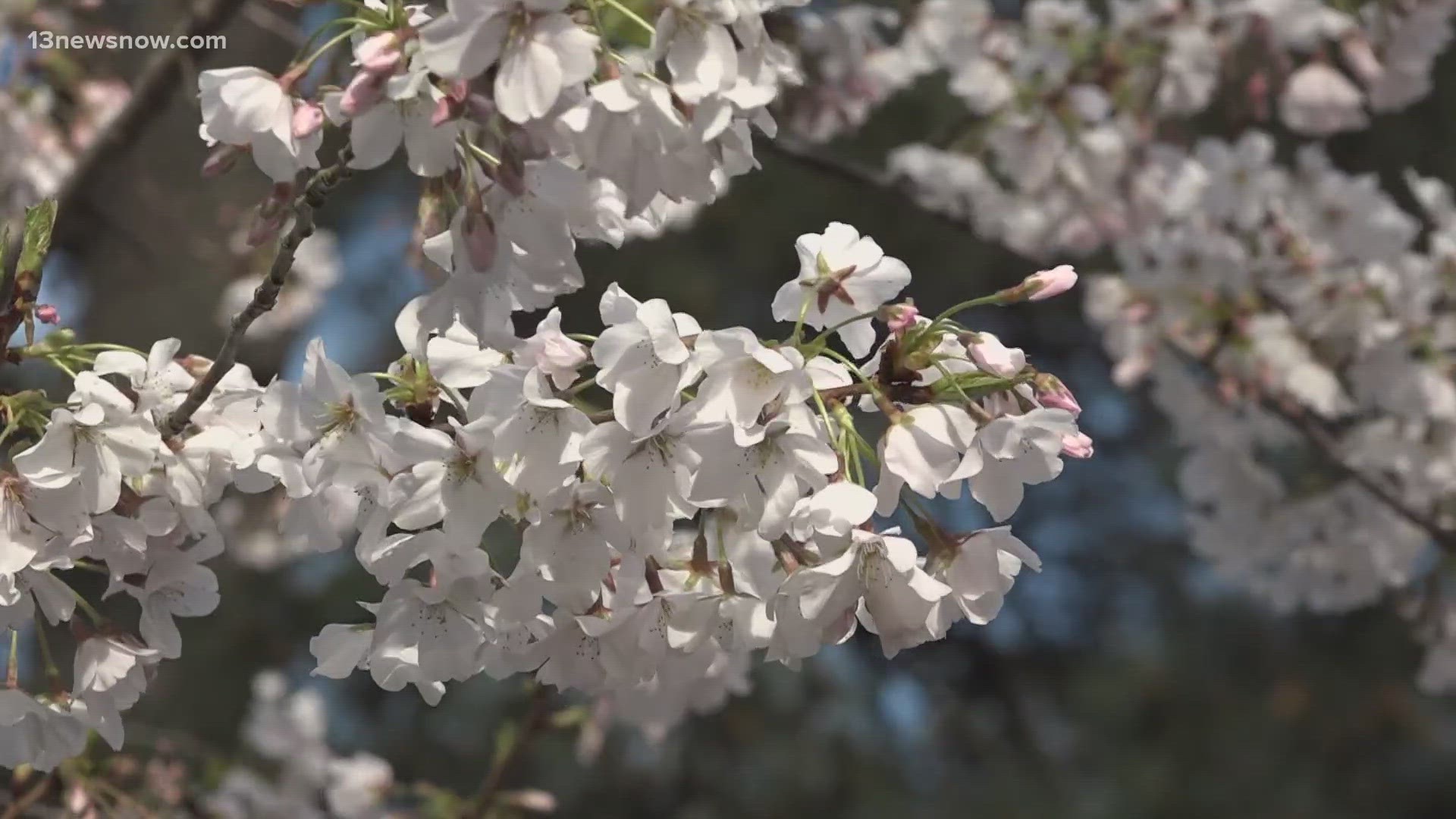VIRGINIA BEACH, Va. — The springtime allergy season is here, and it came early this time around. You might have already noticed a lot of pollen in the air or on your car.
A 2023 Allergy Capitals report by nonprofit patient advocacy organization Asthma and Allergy Foundation of America (AAFA) even ranked Virginia Beach high up on its list of "Most Challenging Places to Live with Pollen Allergies."
Depending on who you ask, symptoms of tree pollen in the air could be none, to mild or intense.
"My nose has been running. I'll be wearing mascara or makeup, and then my eyes will be watering. So, then I have to rub that, then the makeup comes off and smudges," said 11-year-old Lillian Kerr.
"Ear, nose and throat, they were all disrupted. A little bit of cough, it's been lingering for a few weeks," said Virginia Beach resident Sam Iam. "I've done a couple rounds of different meds this year, which is unlike the previous years."
The aforementioned Allergy Capitals report by AAFA ranks Virginia Beach in the top 11 out of 100 metro areas in the U.S. as the most challenging place to live with pollen allergies.
"That does not surprise me. I think it's a great place to live, but when it comes to allergies, it's probably top 10 for me," said Christine Punyanitya, a resident of Virginia Beach.
Researchers with AAFA base their rankings on pollen count (trees, grass and weeds), access to allergy specialists and usage of over-the-counter medicine, like Flonase, Zyrtec and Benadryl.
"Virginia Beach was average in pollen count and average in access to specialist, it was high on over-the-counter medication usage," said AAFA CEO and President Kenneth Mendez.
Mendez said Virginia has not even reached peak allergy season yet.
"Unfortunately, we haven't reached peak allergy season yet. And it also depends what you're allergic to," he said. "You've got the summer and fall to look forward to if you're allergic to grasses and weeds."
Mendez suggested everyone see an allergy specialist to narrow down triggers, and so you can better prepare.
Mendez attributed the longer and more intense allergy seasons to climate change.
"Warmer in the winter, so it starts a lot sooner. And then that first freeze doesn't happen until much later, so that extends the seasons," said Mendez. "It's just something to keep in mind in terms of your everyday life and your carbon footprint."
Signs of the springtime allergy season kicked in as early as February this year. Even Dr. Patrick McHugh, chief medical officer for Velocity Urgent Care, has noticed.
"Not only in the urgent cares, but the in the emergency departments, we're seeing an uptick of patients presenting of upper respiratory symptoms including asthma exacerbations or attacks," said McHugh, who also works as an emergency physician.
Moreover, McHugh offered advice for a more tolerable allergy season.
"Plan on spending less time outdoors when those pollen counts are high. Another thing to do is avoid touching your eyes when you're outside," he said, in part. "And then when you come inside, wash your hands to remove that pollen from your skin."
Pets can also carry pollen into the home.
"Wipe furry animals off when they come inside and bathe them weekly if appropriate [per your veterinarian]," McHugh recommended.
And while McHugh recognizes it may be difficult to spot the differences between symptoms of allergies, COVID-19 and influenza, he said "fever and muscle aches are not typical symptoms associated with seasonal allergies."

